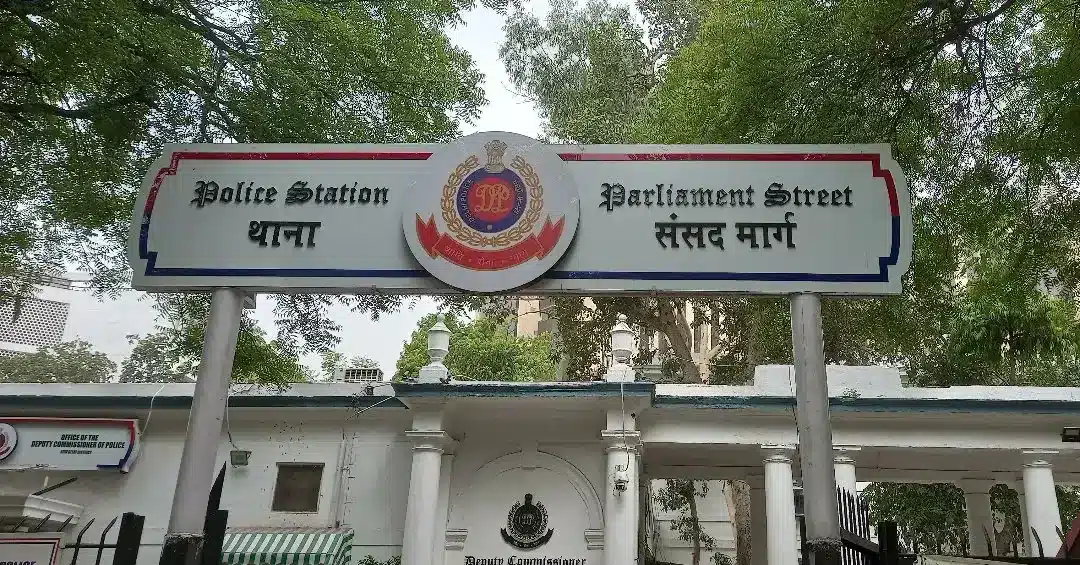About General Diary (GD)
- General Diary, also called Station Diary or Daily Diary in some States, is maintained under the provisions of Section 44 of the Police Act, 1861, in the States to which it applies, or under the respective provisions of the Police Act(s) applicable to a State or under the Police Manual of a State, as the case may be.
- Section 44 of the Police Act, 1861 states that it shall be the duty of every officer in charge of a police station to keep a general diary in such form as shall, from time to time, be prescribed by the State Government and to record therein all complaints and charges preferred, the names of all persons arrested, the names of the complainants, the offences charged against them, the weapons or property that shall have been taken from their possession or otherwise, and the names of the witnesses who shall have been examined.
- It is a record of all important transactions/events taking place in a police station, including the departure and arrival of police staff, the handing over or taking over of charges, arrest of a person, details of law-and-order duties, the visit of senior officers, etc.
- Additionally, the GD summarizes each First Information Report (FIR) registered at the police station, as FIR registration is a significant event there.
- Simultaneously, the GD entry reference is noted in the FIR Book, while the FIR number is mentioned in the GD entry. This parallel documentation ensures that both records are kept up to date.
- The GD is maintained in chronological order, with a new entry starting with number 1 each day.
What is a First Information Report (FIR)?
- It is a written document prepared by a Police officer based on information given by an aggrieved person or any other person, either in writing or made orally, about the commission of a Cognizable Offence.
- The investigation is started only after the filing of the FIR.
- Who can lodge an FIR?
- Anyone who knows about the commission of a cognizable offence can file an FIR. It is not necessary that only the victim of the crime should file an FIR.
- A police officer who comes to know about a cognizable offence can file an FIR himself/herself.
- An FIR can only be lodged in cases of cognizable offences.
General Diary (GD) vs. First Information Report (FIR)
- A copy of each FIR is sent to the superior officers and to the concerned Judicial Magistrate.
- A copy of GD is not sent to the Judicial Magistrate, though its copy is sent to a superior police officer.
- The Magistrate of the district shall be at liberty to call for any inspection of such GD.
- The signature of the complainant is obtained in the FIR Book as and when the complaint is given to the police station. On the other hand, there is no such requirement of obtaining signature of the complainant in the general diary.
- The general diary is an internal police record, while in the case of F.I.R., a copy of these will be provided to the complainant.
Q1) What is a Cognizable Offence?
A Cognizable offense or case is defined as the one which an officer in-charge of a police station may investigate without the order of a magistrate and effect arrest without warrant. The Police have a direct responsibility to take immediate action on the receipt of a complaint or of credible information in such crimes, visit the scene of the crime, investigate the facts, apprehend the offender and arraign him before a Court of law having jurisdiction over the matter.
Last updated on February, 2026
→ UPSC Notification 2026 is now out on the official website at upsconline.nic.in.
→ UPSC IFoS Notification 2026 is now out on the official website at upsconline.nic.in.
→ UPSC Calendar 2026 has been released.
→ UPSC Final Result 2025 is expected to be released in the second week of April 2026.
→ Check out the latest UPSC Syllabus 2026 here.
→ Join Vajiram & Ravi’s Interview Guidance Programme for expert help to crack your final UPSC stage.
→ UPSC Mains Result 2025 is now out.
→ UPSC Prelims 2026 will be conducted on 24th May, 2026 & UPSC Mains 2026 will be conducted on 21st August 2026.
→ The UPSC Selection Process is of 3 stages-Prelims, Mains and Interview.
→ Prepare effectively with Vajiram & Ravi’s UPSC Prelims Test Series 2026 featuring full-length mock tests, detailed solutions, and performance analysis.
→ Enroll in Vajiram & Ravi’s UPSC Mains Test Series 2026 for structured answer writing practice, expert evaluation, and exam-oriented feedback.
→ Join Vajiram & Ravi’s Best UPSC Mentorship Program for personalized guidance, strategy planning, and one-to-one support from experienced mentors.
→ Check UPSC Marksheet 2024 Here.
→ UPSC Toppers List 2024 is released now. Shakti Dubey is UPSC AIR 1 2024 Topper.
→ Also check Best UPSC Coaching in India




















